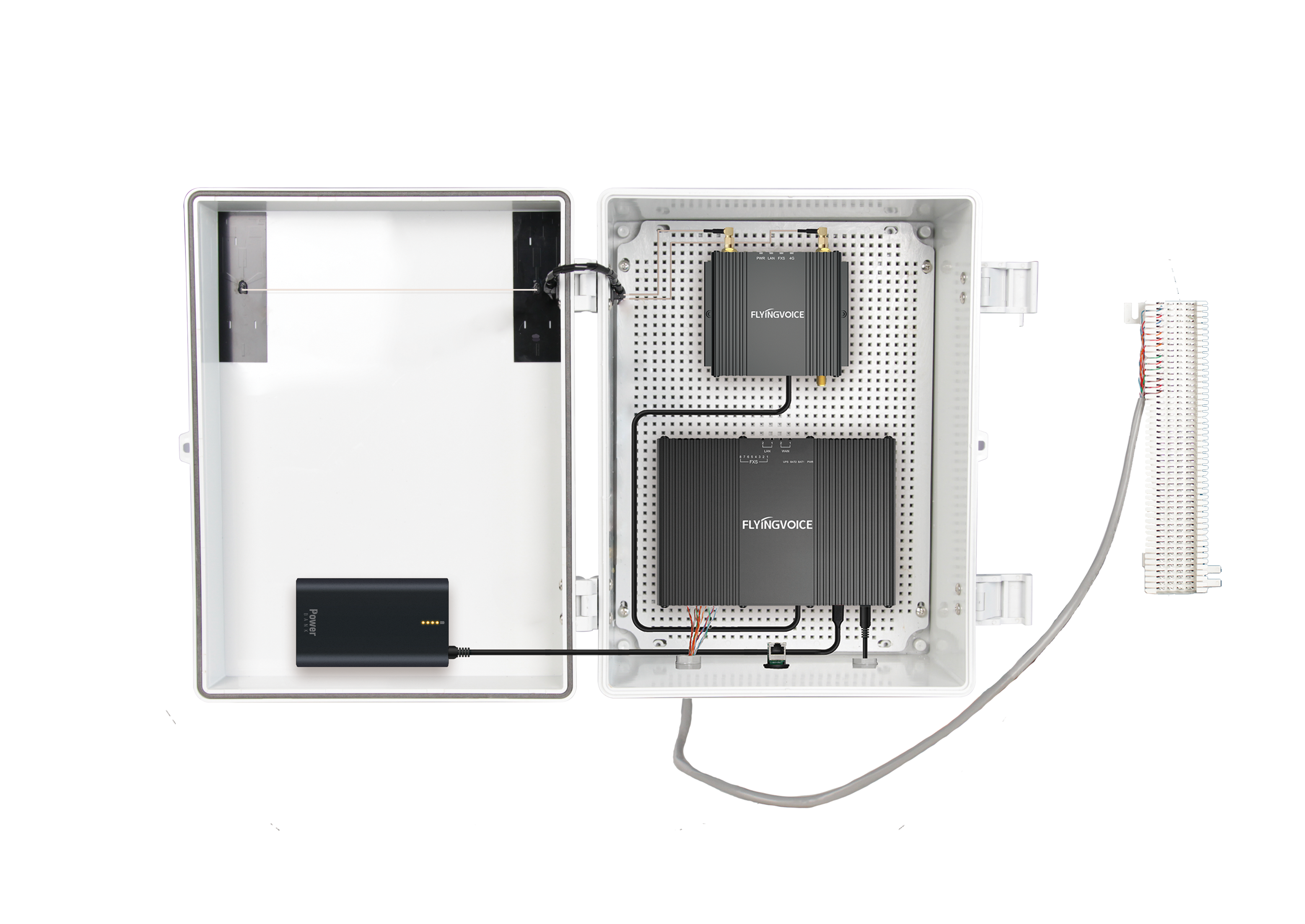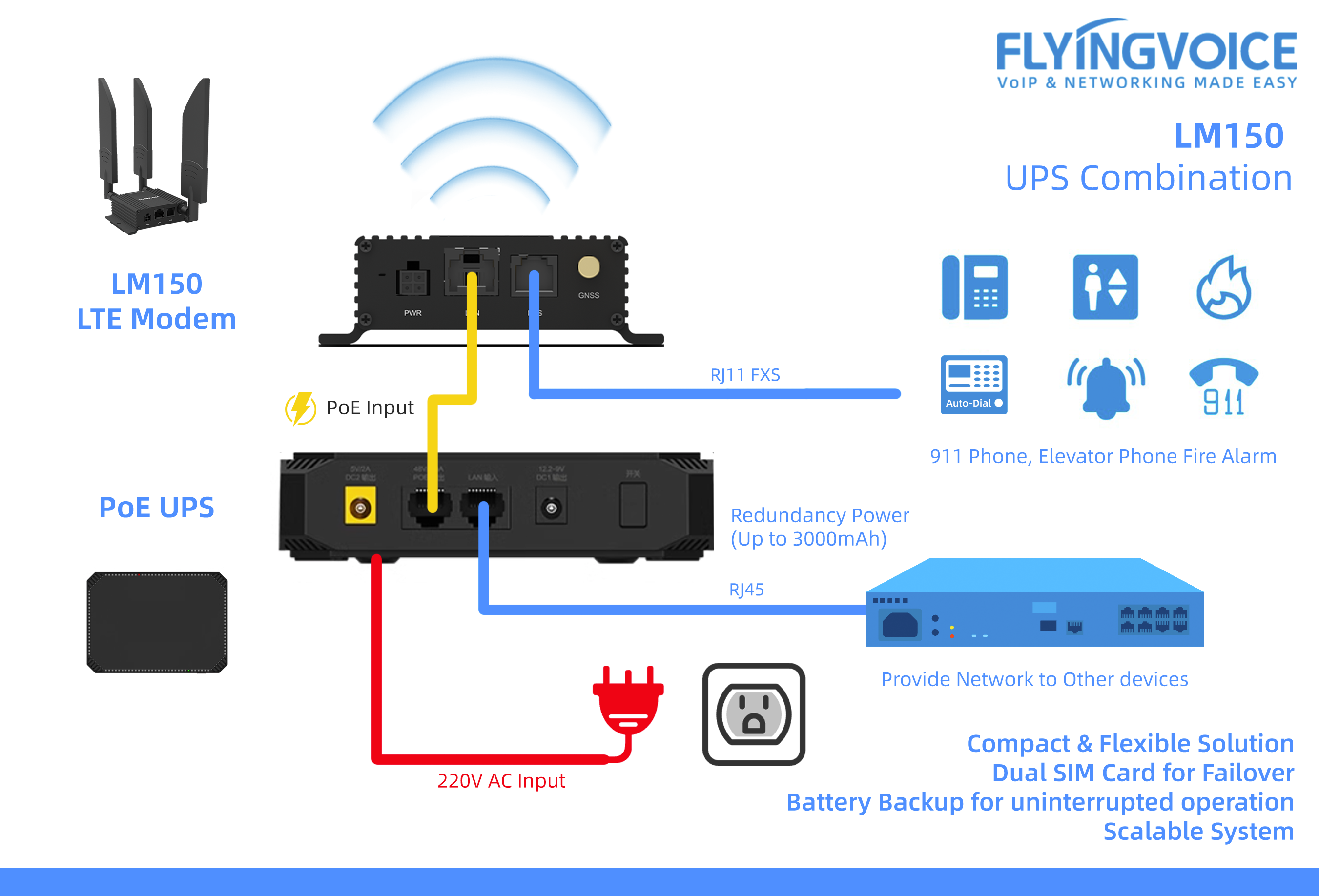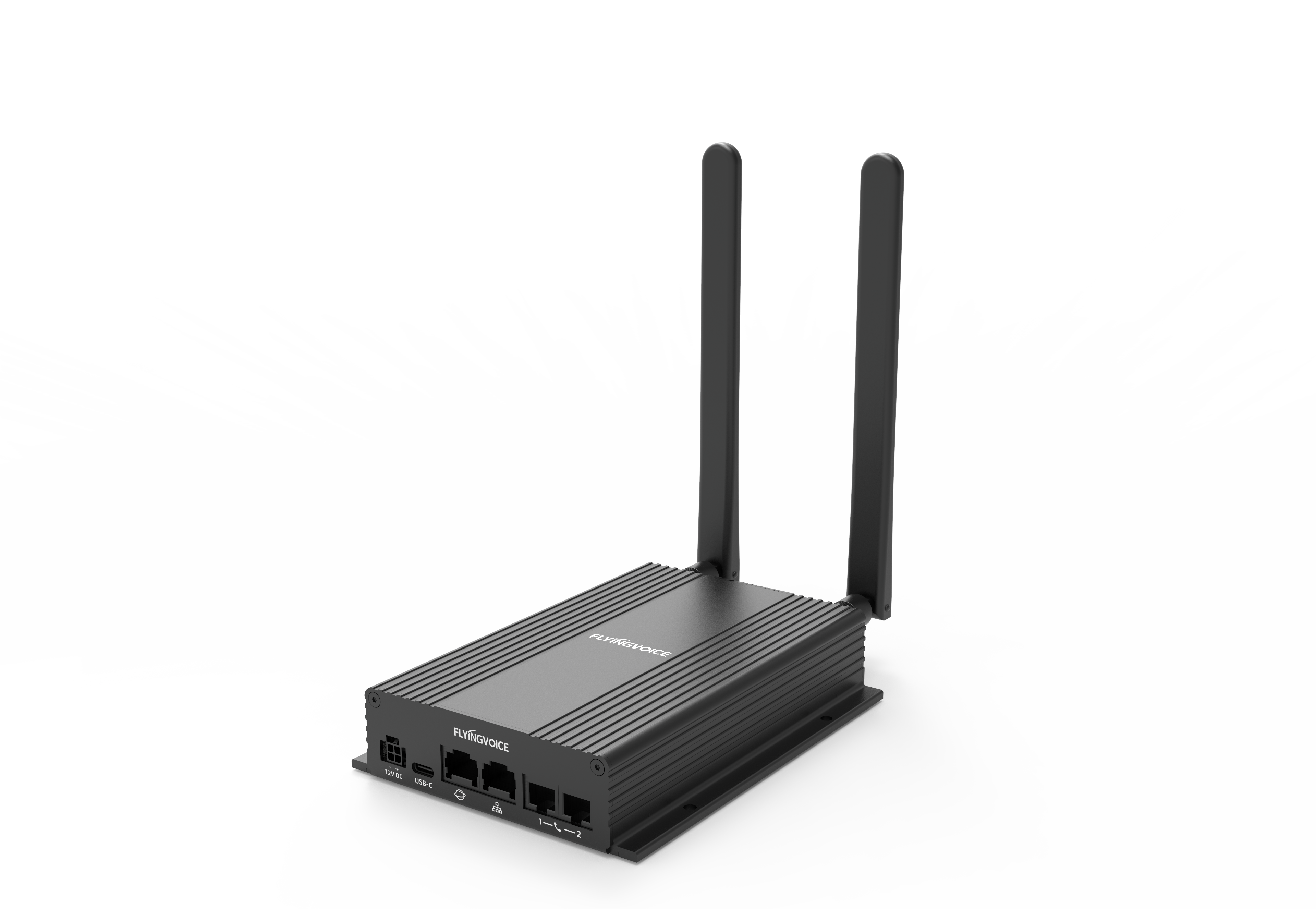POTS lines are phasing out
Plain old telephone service (POTS) is the original analog phone line system that have been using since the 1880s. In 2019, the Federal Communications Commission's (FCC) POTS Lines Forbearance Order 19-72A1 marked the end-of-life for traditional analog POTS line systems. AT&T and Verizon have stated that they will start discontinuing service in some areas and the cost of an existing POTS Line is increasing rapidly.

Rising cost
What is the option for an alternative solution?
It is absolutely not a promising idea to keep the existing POTS line for your business. It is a trend that the POTS line phased out and cost is rising. Even though you might be able to bear the rising bill, the maintenance service from a telecom provider will become harder and harder. It takes a longer time and more money to restore an outdated system.
However, full-scale replacement of original terminals to digital terminals will cost a large budget, internal engineering resources, full support from central system companies, and so on. It will bring more risk and a gap to interrupt your business.
Considering minimal changes to the current system, taking action to replace the "old copper line" with "wireless" is a more promising solution. It is a trend for the coming years, and we noticed that new POTS replacement players have shown up in the market in the past two years.
Challenges to replace the POTS line
If we decide to replace the POTS line with digital communication, we will face some challenges. Here we need to know what benefits and features the POTS line is bringing to us in the past decades.

POTS line
- Firstly, the POTS line uses a dedicated network and converts the voice into an electrical signal, it supplies power to analog terminals at the same time. It is very dependable even in the power outage stage. Modern digital solutions require external power backup for terminals in power outage circumstances.
- As we know the POTS line uses a dedicated physical network for data transmission, and modern digital communication uses packet-switching technology which is IP-based and data goes through the Internet. Compared with a dedicated network, the digital solution needs to solve the network communication problems, such as congestion, lag, and network failure.
- The POTS line uses circuit switching technology and is not required for data compression during transportation. Digital communication converts the voice into a digital signal, it is unavoidable to use a Voice Codec to digital the signal, which causes the incompatibility issue of protocol. E.g., Fax, modem calls, and alarm panels can NOT work well with the current IP-based network, because IP packets can be dropped or voice compress distortion will cause a high failure rate.
Competitors and available solutions in this market
Form 1: POTS Box
This is a common combination in the market, a waterproof NEMA box contains an industrial-grade LTE router, an ATA (FXS gateway) that provides VoIP functionality, and one mini UPS for power backup. In this type of combination, due to the local network access certification for LTE routers among US carriers, most suppliers will choose industrial-grade routers suitable for domestic use in the United States. However, the cost of this type of router is relatively high, including the expensive cost of the device management platform. Therefore, to balance the entire POTS Box, most suppliers can only choose to use the very simple and low-cost ATA in their solution. In this case, the performance and stability of ATA are facing great challenges.
Form 2: All-In-One Router
Several participants have their all-in-one products launched in the market, which include LTE internet access, ATA functionality, and built-in backup batteries in one device. They all provide turnkey solutions, including SIM cards for LTE internet access, as well as DID/SIP account/voice data management and device management. These benefits of a complete set service save your solution-building time, but the advantages and disadvantages are also relative. In this case, they charge relatively high service fees, and you can only purchase a complete set of services from them, which is not friendly for those who want to integrate their own SIM card resources or integrate their familiar VoIP platforms into their system.
Form 3: VoLTE device
VoLTE came up as an alternative solution for POTS line replacement as well. Here we saw a few simple VoLTE devices on the market, which do not support VoIP functionality. They can simply replace the voice service of the POTS line, due to the limitations of VoLTE, it may not have good support for alarm, fax, and modem data calls, but it is still a suitable alternative for applications in emergency call scenarios.
Overall, different forms of products in this market have their suitable application scenarios. According to different analog legacy devices connected simultaneously and different application scenarios, there is no one product that can meet all the needed of POTS replacement. Therefore, more flexible solutions from Flyingvoice can gain market favor.
Why Flyingvoice
After more than 10 years of development, Flyingvoice has gained rich industry experience in VoIP and POTS solutions. We understand well that customers' needs for POTS replacement.
If you have the technical ability to build your own POTS replacement solution, Flyingvoice will be the best choice for your hardware products. Currently, Flyingvoice has several proposals for hardware products,
1. LM150+PoE supported UPS
LM150 is an industrial router with VoLTE support. In addition to providing stable LTE internet access, it also has an FXS port that provides VoLTE services. This router can be powered through POE, paired with UPS which supports PoE functionality. LM150 and UPS run as a simple and suitable POTS replacement solution, which can be applied to Emergency phone applications, e.g., Elevator phone line replacement.
LM150&PoE UPS
2. LM150+PR08+Power Bank, a typical combination
LM150 router can be paired with PR08 ATA gateway and it provides a reliable network connection to PR08 (IP passthrough). PR08 is the core device in our solution. To be compatible with different applications, we have developed multiple application protocols, such as Contact ID, modem V.150.1, as well as T.38 and T.37 fax protocols. It manages the original analog signal properly (aimed for Alarm, FAX and modem call) and reduce the failure rate. That is very promising and keeps the alarm, FAX and modem call running in the traditional way as they did in past decades.
PR08 supports a battery management function, two Type C power bank interfaces that can charge by power bank during a power outage, and PR08 will manage the power bank charging cycle when run over the main power supply. Two 65W power banks, which can extend the system to 24 hours of power backup in total.

LM150+PR08+Power Bank
3. Compact All-In-One LM152
If you want a more compact device that right fits your system, we will recommend an All-in-One POTS replacement device - LM152. It supports the major features which POTS Box (PR08 and LM150) does, e.g., built-in LTE modem, battery, and regular ATA functionalities. It also integrated VoLTE and VoIP at the same time. It is a game changer for the POTS replacement market.
LM152
No matter what hardware requirements you promote, we can find suitable hardware for your POTS replacement solution. Meanwhile, we are offering a free trial account of Flyingvoice AWS Cloud device management. Sincerely, We want to use our years of experience to help you make your own POTS replacement to VoIP or VoLTE smoothly and steadily, don't wait until the last minute, it is wise to take your action with Flyingvoice today!















 Back to list
Back to list









